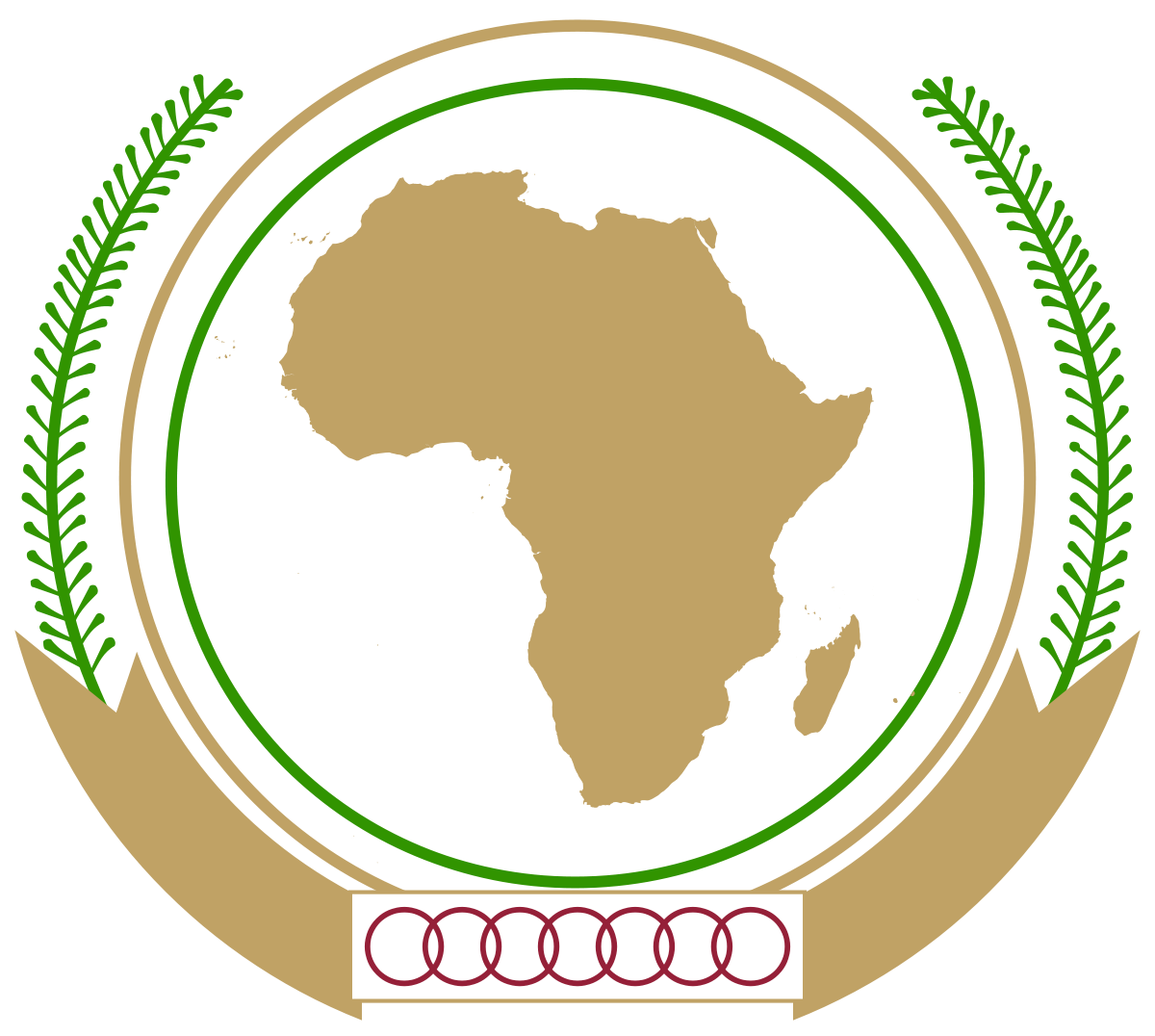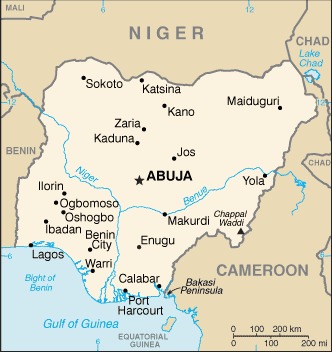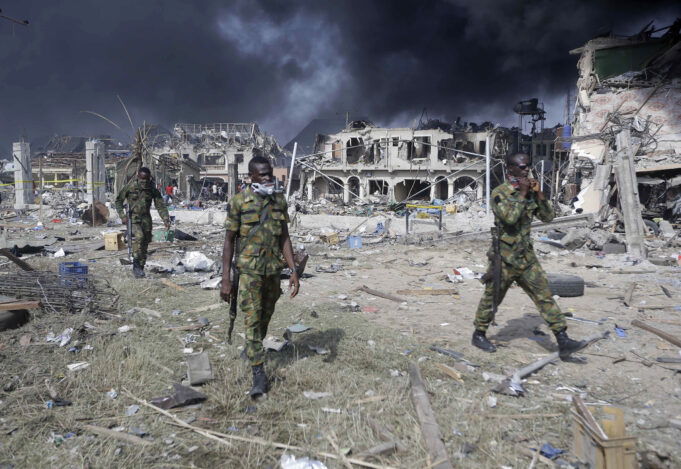In light of constant chaos and crisis within Nigeria, some observers and experts question if it should be considered a failed state? They point to a myriad of destabilizing security issues, endemic corruption, and a deteriorated public trust within the country.
Some western analysts have already signed Nigeria’s death certificate. They argue the country has fallen and needs further assistance from foreign donors, such as the United States and European Union. Other analysts disagree and say Nigeria is not to be counted out.
“Nigeria has not fallen,” said Emira Woods, of the International Working Group Africans Striving for Justice, Peace, and Dignity.
“The issues with Nigeria are systemic. It is these powerful multinational corporations that actually strip away democracy … opportunities for workers to exert their rights … take over peoples land and leave behind what we see in places like the Niger Delta,” she said.
Ms. Woods told The Final Call that the root of the modern problems in Nigeria lay squarely on foreign exploitation that promotes acute corruption among Nigerian leaders who she said aids and abets the problem.

Based on history there is no doubt in the vast power potential of Nigeria, the second largest economy in Africa and most populated with 209.6 million people. A vibrant Nigeria means a strengthened continent that can also benefit a strong future for Diaspora Blacks scattered in the Western Hemisphere, the Caribbean and Europe returning to self and kind after four centuries of estrangement and violation.
The Honorable Minister Louis Farrakhan of the United States-based Nation of Islam has spoken out about the potential of Africa and what it means to Blacks throughout the world.
“Now, what should our relationship be to Africa? The Honorable Elijah Muhammad said this of Africa, that our Black people of Africa and Asia are our ‘true friends,’” said Minister Farrakhan in a February 2013 speech at the Nation of Islam annual Saviours’ Day Convention.
“Right now, we are witnessing a ‘scramble’ for Africa just as it happened almost 130 years ago… when Europe organized The Berlin Conference… and planned how they would divide up the African continent to extract its wealth for themselves,” he said.
There is a new scramble for Africa by Europe and America for the huge quantity of natural resources that they need to control. Almost every known natural resource needed for the Western industrial economy, especially oil, is in the land of Africa. The big power competition is between America, China, the EU and Russia.

So, when news of social, economic, and political trouble is reported from the West African nation, there is cause for concern, which must be understood.
“You’ve got to unpack what’s going on in Nigeria,” said Ms. Woods. She said the role of big oil companies and their power must be remembered. Multinational companies averted democratic processes which undermined Nigeria. They fostered the situation where Nigerians were “marginalized” and “rendered communities invisible” in the oil rich regions and blocked accountability of Nigerian leaders. “Because they were in search of greed,” Ms. Woods explained.
As analysts easily write Nigeria off as a failed state, the question is how are Nigerians living lives with less economic stability than their parents and grandparents?
“I believe it’s at the footstep of the economic system that has exploited, has created a situation that privileges wealthy White shareholders” at the expense of Nigerians, said Ms. Woods.
Overlay the foreign exploitation with the use of the military to protect the economic interests of the multinational companies and that is where the problem lays of who is in or out of Nigerian power, said Ms. Woods. Where the U.S. military is involved, it was under the guise of Nigeria’s anti-terrorism partnership with America.
Since 2009, Nigeria has been battling insurgents in its northern region which borders the Sahel region of Africa. The U.S. has about 6,000 personnel on the continent. In West Africa, the U.S Africa Command’s AFRICOM mandate is to advise and assist.
However, Minister Farrakhan pointed out to America: “You should be helpful and support good leadership in Africa—leaders that love the people; want the wealth of Africa for Africans! Then, if you negotiate fairly with them, then all can benefit rather than ‘just a few.’”
Nigeria’s domestic security is on edge with a seemingly unending war of attrition against insurgent militant groups like Boko Haram and the Islamic State West African Province (ISWAP). Then amid battling its anti-government insurgents, were widespread anti-police brutality protests and continued pressure to disband the national police force called the Special Anti-Robbery Squad (SARS) also under international fire by rights organization like Amnesty International who accused the force with committing extrajudicial killings, enforced disappearances and torture on Nigerians.
Furthermore, Nigeria military is overstretched across nearly every state of the federation. Analysts say the police force is undersized and ill-trained and both security apparatuses are ladened with corruption and abuse.
There is a lot of corruption, a long history of authoritarian and military rule and a failure to handle grievances in various regions and segments of the Nigerian people, said Bill Fletcher, Jr., past-president of TransAfrica Forum.
“I would be hesitant to call Nigeria—failed state,” he said. “I think it’s a problematic state,” Mr. Fletcher added.
In an annual “Corruption Perceptions Index” from the Transparency International that tracks public perception of corruption within countries, for 2020 Nigeria was ranked 149th of 180 offending countries. The index indicates Nigerian public perception of the state of corruption.
The corruption result comes amid numerous challenges facing Nigeria ranging from the Covid-19 pandemic, insecurity, high unemployment and a sharp increase in government borrowing amongst others.
Nigeria is part of the expansive problematic Sahel Region that includes Burkina Faso, Mali, Chad, Sudan, and Eritrea, where political upheaval has been characteristic.
Socially there has been an uptick in mass kidnapping of school children in the country for ransom with little outcry internationally or in Nigeria. In contrast to the abduction of over 200 schoolgirls in the Chibok area of Southern Nigeria’s Borno state in 2014 that sparked a global movement under the hashtag #BringBackOurGirls, some 700 students were abducted in relative silence since December 2020. Armed groups carrying out kidnapping for ransom are being blamed for a series of raids on schools and universities in northern Nigeria recently.
Bukky Shonibare, co-founder of the Bring Back Our Girls Group, during the Chibok crisis told BBC that Nigerians are exhausted from the frequency of mass abductions.
“There’s only a limit to what the heart can take,” she said. “Nigerians went through a lot following the kidnap of the Chibok girls… people are just really tired,” Ms. Shonibare added. Her group worked behind the scenes to apply pressure in the subsequent abductions.
All of this is compounded by rising poverty, unemployment rates, wealth disparities, ineffective governance, and public distrust. Demographically, Nigeria like much of the continent has a sizable youth population, that is largely unemployed and dissatisfied.
Whatever the problem is for Nigerians internally, the weight of crisis also bears on the West African region, the continent and on some levels the world. However, Mr. Fletcher says it must be understood in the lens of Africa’s colonial past.
The problem of Nigeria is rooted in the historic divide produced by false boundaries created during the colonial violation of Africa.
“Going back historically, Nigeria is a very peculiar amalgam of different ethnic groups that under ordinary conditions would not be in the same nation state,” said Mr. Fletcher.
“Folks that was brought together did not come together as a voluntary amalgamation…that was going to present problems from the very beginning,” he explained.
What must be seen assessing the difficulty factors concerning Nigeria was the complication of the confusion left by the Europeans.
The Organization of African Unity, the forerunner of the African Union, convened a major debate on African boundaries and determined it was too complicated to reverse European colonial borders and opted to leave them in place. As a result, different ethnic and religious divides were exacerbated. Now countries are suffering inner divisions based on language and ethnicity like Cameroon, once dominated by France, but has populations of Africans, once colonized by the English.
“It’s not that there is any kind of pure state…these were created as a result of the colonial system,” stated Mr. Fletcher.
He said other dynamics with Nigeria, unlike South Africa or Zimbabwe where multiethnic revolutionary struggles against White minority rule existed, it did not have revolution struggles that united the people along ethnic divides against a common enemy.
“So, the ethnic boundaries and religion and the polarization of wealth within the country has created very deep divisions… played upon by Western powers,” explained Mr. Fletcher.
Mr. Fletcher said he believes there must be regional approaches to solving the issues of Nigeria and Africa.
“Frankly, I think it would be in Nigeria’s national interest as well as the regions national interests if there was a push in that direction,” said Mr. Fletcher.—Brian E. Muhammad, Staff Writer













